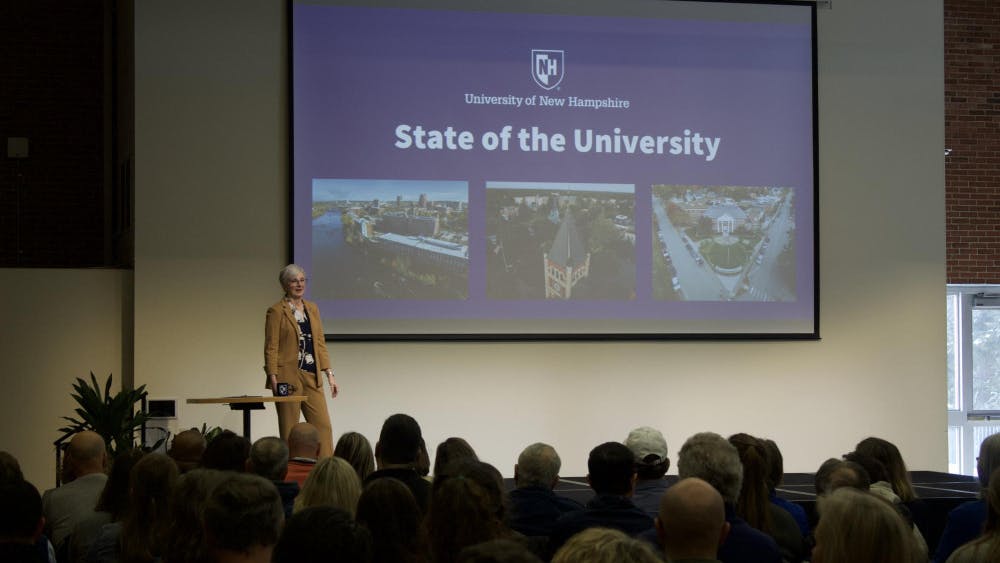Something seems very off kilter in the way that this university goes about scheduling its weekend bus routes. Our current schedule has only one active bus traveling the campus on the weekends. For those unfamiliar, the campus runs seven buses during the week.
Why is this? I’ve heard that, in 2012, a group of kids attempted to flip a bus that drove to the Cottages of Durham one weekend during the school year. Allegedly, this rowdy behavior caused the university to crack down and eliminate this bus route while also cutting down the frequency of the weekend connector. However, in doing so, I feel as though they have only  exacerbated the issue.
exacerbated the issue.
A few weekends ago, I was heading to my friends place at the Lodges. I waited for the weekend connector at the MUB bus stop for over 30 minutes past when the bus was scheduled to arrive, according to the UNH mobile app.
When the bus did arrive, it was absolutely jam packed with people; every seat was taken and every possible place to stand within the legal limit was filled. About half of the individuals got off the bus, and it was a hunger game-like battle for the 50 or so people that were also waiting at the MUB to get on the bus. Only about half of them actually made it on.
The driver handling this situation had to actually step outside the bus in order to get the people on in a somewhat orderly fashion and direct the overflow of people in the road out of the way of the bus. In simple terms, it was chaotic and time consuming and I genuinely felt sorry for the driver.
Last year I lived at West Edge and I used the bus routes very frequently. Sometimes you wait longer than expected, but never for such an extended period of time as you do on the weekends. There are heavy periods and light periods. Based on all the times I have ridden the bus, the majority of the time the weekday buses are in operation they run under light periods. During the weekends at nighttime, the bus situation is almost always like what I have described—a nightmare.
During the week, many students live near all of their classes and responsibilities, and get in the routine of walking everywhere they need to go. However, many people want to see their friends who live in various parts of campus, especially at night on the weekends. Spend one night around 10 p.m. trying to get the weekend connector, and it is obvious the demand is there.
The cost of implementing new routes would be minimal. The buses are already bought, and one is already in operation. So the only thing that it is going to cost the university is paying for the driver and gas. If the university were to add three additional buses to the weekend route between the hours of 8 p.m. and 12 p.m., based on the length of the route, the average miles per gallon of transit route buses, the average price of gas and the hourly wage of the employee. I estimate that this would only cost the university approximately $12,000 per year. And to be honest, this estimate is probably high—I used kind margins.
Clearly, money is not the issue. Putting in these additional buses would make the nighttime weekend routes much safer, both for the students riding them and the drivers operating them. Furthermore, it would leave the student body with more reliable public transportation during the times in which they most want it.
Matthew Bracci is a junior majoring in economics.












